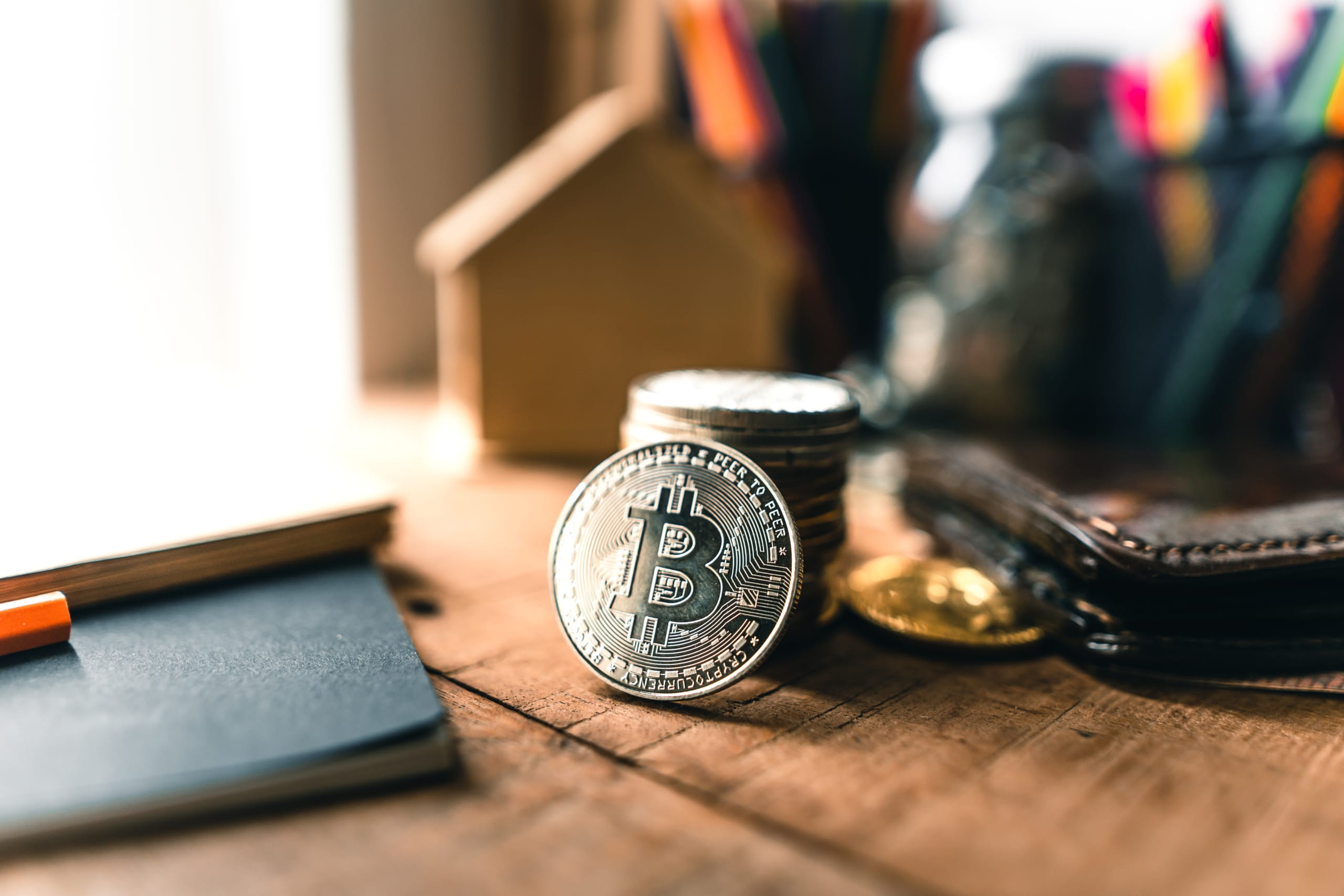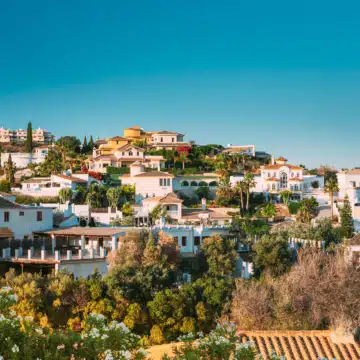looking to buy a home?
Submit this Form and Benefit from our 25 Years' Experience & Strong Local Network.Real estate tokenisation is revolutionising property investment worldwide, and Spain’s Costa del Sol is well-positioned to embrace this shift. By dividing real estate assets into digital tokens, tokenisation enables a broader pool of investors to participate. With blockchain technology driving this change, tokenised real estate offers more transparency, security, and efficiency compared to traditional methods. As a region known for its luxury properties and international appeal, Costa del Sol could benefit from the innovation seen in markets like the UAE and the US that are leading the way in tokenising real estate.
In this article, Realista will talk about real estate tokenisation and how it can impact the Costa del Sol property market.
Understanding Real Estate Tokenisation
Real Estate Tokenisation converts property ownership into digital tokens on a blockchain. Each token represents a share of the property, allowing fractional ownership of high-value assets.
For instance, a $1 million property could be divided into 1,000 tokens worth $1,000 each.
Investors who purchase tokens can acquire proportional ownership, potential rental income, or profits from the property’s sale.
Process of Blockchain-Based Real Estate Tokenisation
Blockchain technology is transforming the real estate industry by enabling tokenisation, a process that converts property assets into digital tokens. These tokens represent fractional ownership, allowing for more accessible and efficient investment opportunities. Here’s how the process works:
Asset Selection and Valuation
- A property is identified and its market value is assessed.
- Due diligence ensures the asset’s legal and financial integrity.
Token Creation
- Blockchain technology is used to divide the asset into smaller, tradable digital tokens.
- Each token represents a fraction of the property’s ownership, often corresponding to a monetary value, e.g., 10 or 100 euros per token.
- Smart contracts are deployed on the blockchain to set the rules for governing the asset.
Token Offering
- Tokens are offered to investors through a Security Token Offering (STO), just like an IPO.
- Investors can purchase tokens using cryptocurrency or traditional currency, depending on the platform.
Ownership and Transactions
- Once tokens are acquired, ownership records are securely stored on the blockchain.
- Token holders can trade, sell, or transfer tokens on approved exchanges, providing liquidity that traditional real estate lacks.
Income Distribution
- If the property generates rental income or appreciates in value, token holders receive dividends or profits based on their proportional ownership.
- Blockchain smart contracts automate and distribute payments directly to investors.
Real Estate Tokenisation Global Adopters
Real estate tokenisation is gaining traction globally, with varying degrees of adoption and regulatory frameworks across different countries. Here’s an overview of its status in some major real estate markets.
UAE
In the United Arab Emirates, real estate tokenisation is already making waves. The recent partnership between the blockchain platform Mantra and DAMAC Group—one of the UAE’s leading real estate developers—shows the transformative potential of tokenisation in the real estate industry. This $1 billion collaboration aims to tokenise DAMAC’s vast portfolio of properties, including luxury real estate. By making these high-value assets available as fractional tokens, the UAE is providing opportunities for a wider range of investors.
Similarly, the Costa del Sol could adopt this model to tokenise its high-end villas, golf resorts, and beachfront properties. Developers in Costa del Sol can follow suit, leveraging tokenisation to attract global investors and increase the liquidity of luxury real estate in the region.
United States
In the U.S., companies like RealT and Lofty AI are leading the tokenisation movement. RealT and Lofty AI are platforms that allow investors to purchase fractional shares in residential properties and earn rental income through blockchain-based smart contracts. This approach has made real estate investment accessible to individuals with smaller budgets.
For the Costa del Sol, this model could be applied to rental properties in popular tourist areas like Marbella and Estepona. Tokenised ownership would allow investors to benefit from the region’s strong rental yields while lowering the barrier to entry.
Singapore
Backed by the Monetary Authority of Singapore (MAS), the country has established itself as a leading hub for tokenisation projects. For instance, InvestaX has successfully tokenised multiple commercial properties, facilitating fractional ownership of high-value assets.
Spain could draw inspiration from Singapore by creating regulations to support tokenised real estate, particularly for international investors. Clear rules and regulations would make the Costa del Sol even more attractive to buyers from Asia, the Middle East, and beyond.
Malaysia
Innovative initiatives are reshaping the real estate market, such as Malaysia’s launch of the Real World Asset project. This real estate project by the Real Lifestyle Company (TRL) is set to tokenise $23 million worth of residential properties. With investment opportunities starting at just $50, the company is trying to make real estate more accessible to a broader range of investors.
How Real Estate Tokenisation Can Change the Costa del Sol Market
Tokenisation has the potential to significantly impact the Costa del Sol real estate market in several ways.
Improved Accessibility for Investors
Tokenisation and fractional ownership make Costa del Sol’s high-end real estate accessible to a wider range of investors. For example, the recent deal of UAE-based DAMAC with the blockchain platform Mantra will allow investors to buy fractional shares of its different luxury developments.
Similarly, Costa del Sol’s exclusive properties could become more accessible to international buyers who might not have the capital to purchase entire properties but are still eager to invest in prime locations like Marbella Golden Mile, Puerto Banús, or Sotogrande.
By streamlining cross-border transactions and allowing fractional ownership, Costa del Sol’s luxury real estate market could appeal more to buyers from markets like the Middle East, Europe, Asia, and North America.
Enhanced Liquidity
Real estate tokenisation offers enhanced liquidity by allowing properties to be traded on secondary markets. In Costa del Sol, tokenised real estate could facilitate faster buying and selling, allowing investors to liquidate their assets quickly compared to the lengthy process typical of traditional property sales. This increased liquidity could attract a more diverse range of investors, from individuals seeking short-term investment opportunities to institutional players looking for greater flexibility.
Boosting New Developments
The Costa del Sol’s booming property market could see significant benefits from tokenisation. To raise funds for new luxury developments, tokenisation could offer Costa del Sol developers an alternative to traditional financing. By tokenising properties during the construction phase, developers could raise capital from a global pool of investors, enabling quicker completion times and reducing reliance on traditional funding sources. This approach could accelerate the development of new luxury villas, golf course properties, and resort-style developments throughout the region.
Transparency and Security
Blockchain’s transparency is one of its biggest advantages as it records all transactions on a public ledger, reducing fraud and ensuring data accuracy. Smart contracts, which automatically execute terms, could streamline transactions and reduce reliance on intermediaries, improving efficiency for both buyers and sellers.
Challenges to Address
Tokenisation offers numerous benefits. However, regulatory issues remain.
Regulatory Considerations
While tokenisation offers numerous benefits, regulatory issues remain a significant challenge. Countries like the UAE, the US, and Singapore have already created a legal framework for digital assets, including tokenised real estate. Spain, too, would need to establish clear legal guidelines to ensure that property tokens are recognised as legal titles of ownership, with well-defined tax implications. Establishing a legal framework will be crucial for building investor confidence and supporting market growth in Costa del Sol
Technological Integration
For tokenisation to succeed in Costa del Sol, it must be seamlessly integrated into existing property systems. The UAE is ahead in this regard, with blockchain already integrated into real estate transactions in Dubai. Spain would need to invest in technology that can connect blockchain systems with traditional property registries, banks, and developers. This could require collaboration among government bodies, financial institutions, and private developers to build an infrastructure that supports tokenised real estate transactions.
Final Thoughts
Tokenisation represents a transformative opportunity for the Costa del Sol property market, offering a more inclusive, transparent, and efficient way to invest in real estate. By drawing on the lessons from countries like the UAE, which is already adopting blockchain in its real estate sector, Costa del Sol can establish itself as a leader in the tokenised real estate space.
While challenges such as regulation and security must be addressed, the potential benefits are immense. With the right regulatory framework and technological integration, tokenised real estate could become a game changer for Costa del Sol’s property market.



